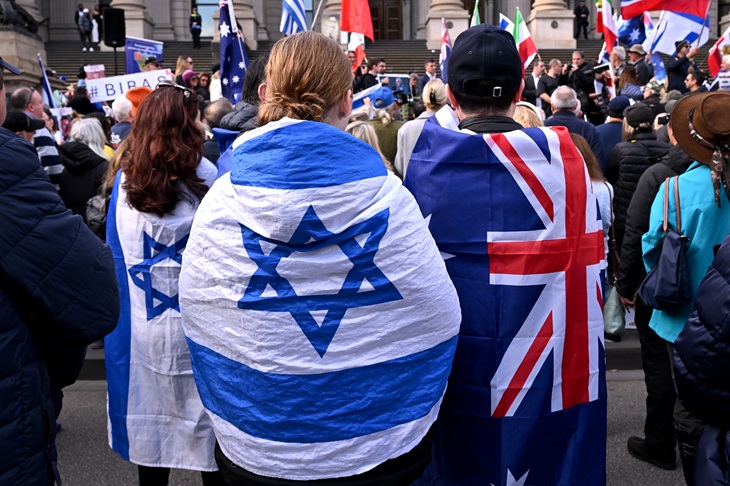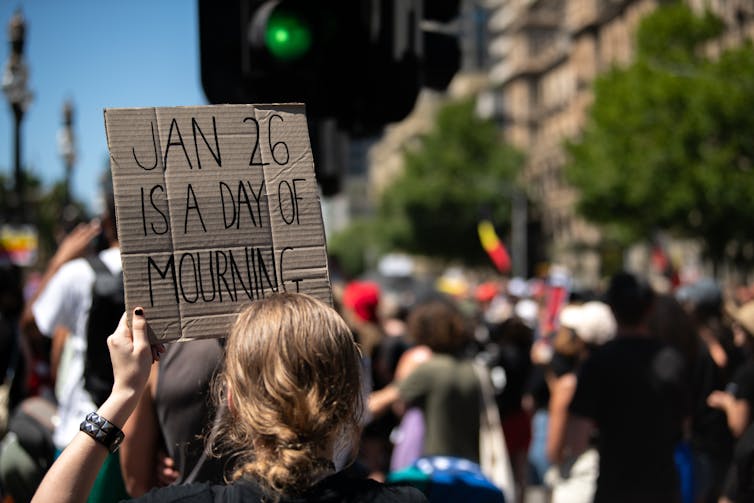
People wearing flags of Israel and Australia listen to speeches at a rally in Melbourne on July 6, 2025, after the front door of a synagogue was set ablaze on July 4. A man suspected of setting fire to an Australian synagogue as worshippers ate dinner inside has been arrested and charged, police said on July 6. (Photo by WILLIAM WEST / AFP) (Photo by WILLIAM WEST/AFP via Getty Images)
UPDATE: Disturbing developments emerge from Gaza as the humanitarian crisis escalates, with UN Secretary General António Guterres urging an immediate ceasefire. The shocking images of destruction and suffering are impossible to ignore. As the conflict intensifies, the world is left questioning: why has peace not been achieved yet?
Israel has made its objectives clear: the return of hostages and the defeat of Hamas. The situation remains dire, with hostilities potentially ending if Hamas were to lay down its arms and return the remaining captives. However, this resolution seems increasingly elusive.
The war ignited on October 7, 2023, a day that began with celebration for many Israelis during the Sukkot festival but quickly turned into one of the darkest chapters in the nation’s history. Early morning air-raid sirens signaled an unprecedented attack by Hamas terrorists, resulting in approximately 1,200 casualties and widespread devastation.
The Dinah Project, a detailed report published in Jerusalem, sheds light on the brutality of the attacks, documenting first-hand accounts from survivors. These testimonies reveal horrific scenes, including sexual violence and the murder of civilians, which have left a profound impact on the nation.
“We love death more than you love life,” Hamas terrorists reportedly told journalist Douglas Murray, highlighting their chilling ideology.
This conflict is not merely a political struggle; it is a devastating humanitarian crisis. As the world watches, the pain of the Israeli people is palpable. The stark contrast between the love of life celebrated in Jewish culture and the Hamas ideology of death underscores the gravity of the situation.
Israel’s military operations continue, with a senior official stating, “There will be no more partial deals.” The call to shift towards the complete disarmament of Hamas reflects a desperate need for lasting security and peace in the region.
As international leaders push for a ceasefire, the urgency grows. The humanitarian toll continues to rise, and the world is left grappling with the implications of this ongoing conflict. Can diplomacy break through the walls of animosity?
What happens next remains uncertain. All eyes are on Israel and Hamas as the potential for negotiations hangs in the balance. The hope for peace is fragile, but the need for resolution has never been more pressing.






